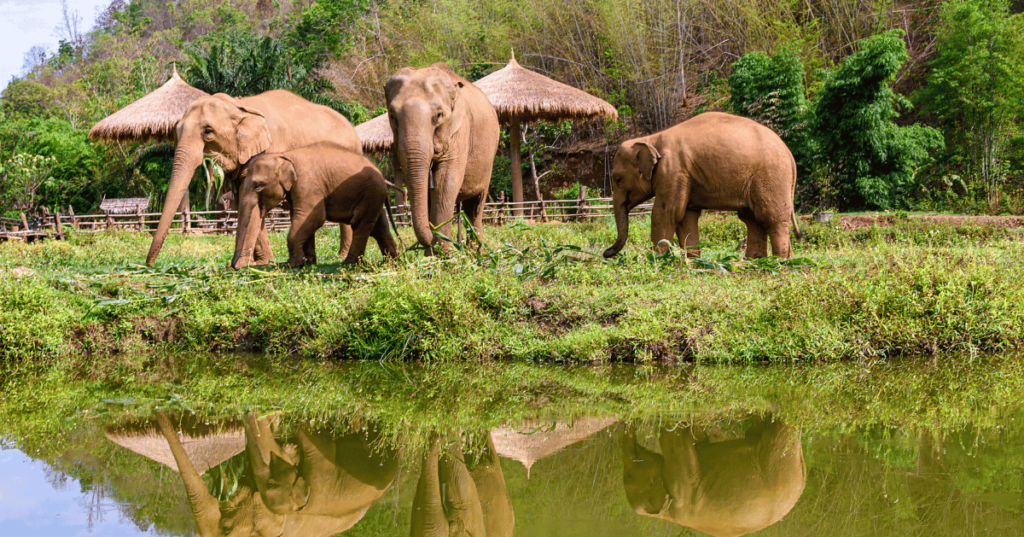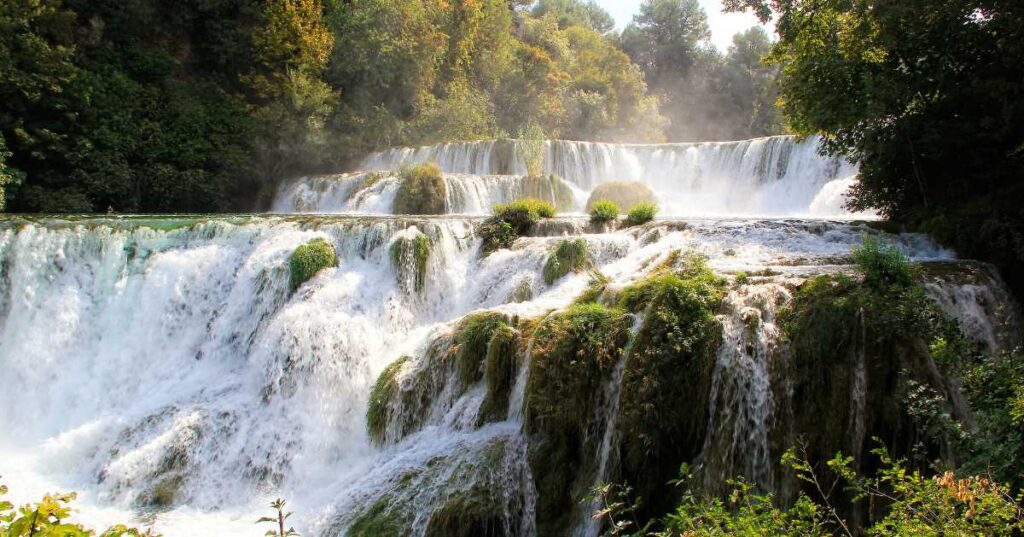I’ll never forget the first time I heard about ethical elephant sanctuaries in Chiang Mai. As an animal lover since childhood, it has always been my dream to see these gentle giants up close. However, the idea of witnessing shackled and performing elephants has always troubled me. When I discovered sanctuaries where the well-being of these magnificent creatures comes first, I knew I had to visit.
Imagine a place where elephants roam freely, splash in rivers without ropes or chains, and interact with their keepers on their terms. This is the reality at Chiang Mai’s ethical elephant sanctuaries—places where elephants can truly be elephants.
If you’re planning a trip to Chiang Mai, I highly recommend visiting these sanctuaries. They offer a unique opportunity to connect with nature and support the well-being of these incredible animals.
Top 7 Ethical Elephant Sanctuaries in Chiang Mai
Chiang Mai is home to several sanctuaries where you can observe these majestic creatures in a way that respects their natural behavior. Whether you’re an experienced traveler or new to ethical tourism, these seven sanctuaries provide unforgettable, respectful experiences with elephants.
1. Elephant Nature Park

One of the most renowned ethical sanctuaries in Chiang Mai, Elephant Nature Park, was established by animal activist Lek Chailert in the 1990s. Located about 60 km north of Chiang Mai, the park focuses on the rehabilitation of elephants rescued from the logging and entertainment industries.
Here, elephants live without chains, are not forced to perform tricks, and do not carry tourists. Instead, visitors observe the elephants as they go about their day naturally. The park also cares for other animals, including dogs, cats, and water buffalo, providing a haven for many creatures in need.
Elephant Nature Park offers various volunteer programs, ranging from day visits to week-long stays, allowing you to immerse yourself in their conservation efforts.
2. BEES Elephant Sanctuary
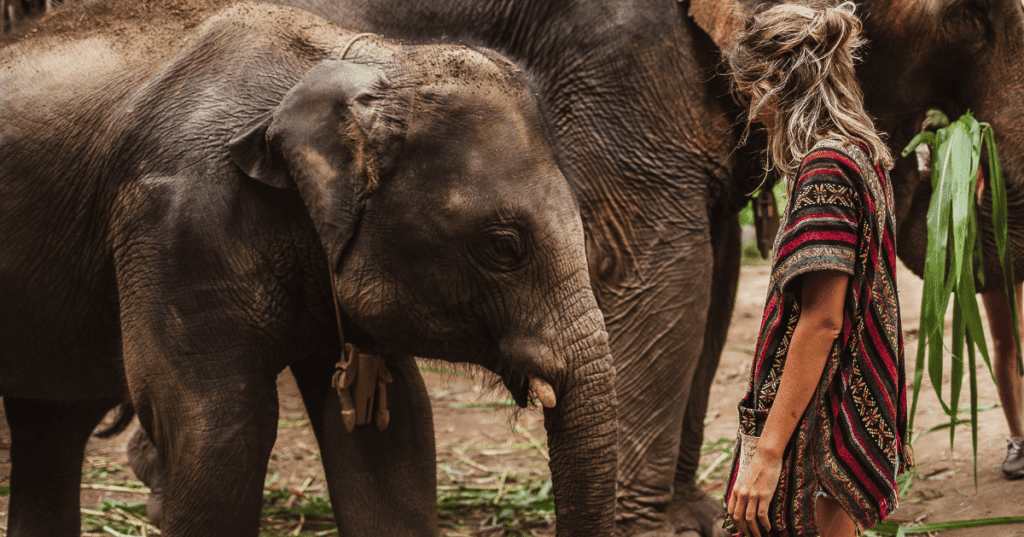
One of the most renowned ethical sanctuaries in Chiang Mai, Elephant Nature Park, was established by animal activist Lek Chailert in the 1990s. Located about 60 km north of Chiang Mai, the park focuses on the rehabilitation of elephants rescued from the logging and entertainment industries.
Here, elephants live without chains, are not forced to perform tricks, and do not carry tourists. Instead, visitors observe the elephants as they go about their day naturally. The park also cares for other animals, including dogs, cats, and water buffalo, providing a haven for many creatures in need.
Elephant Nature Park offers various volunteer programs, ranging from day visits to week-long stays, allowing you to immerse yourself in their conservation efforts.
3. Elephant Jungle Sanctuary
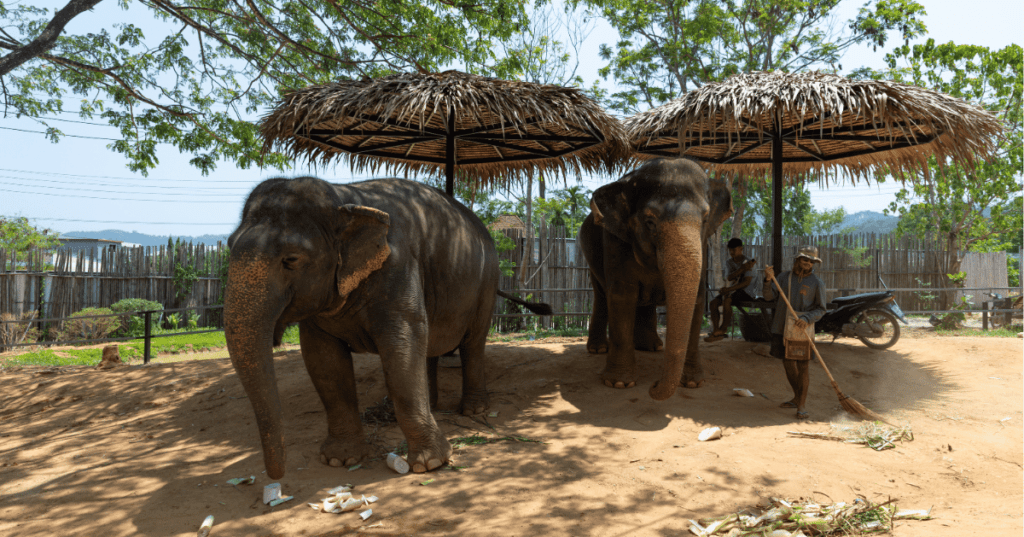
Elephant Jungle Sanctuary, located near Chiang Mai, is an ethical and sustainable eco-tourism project founded by local Karen hill people and Chiang Mai residents. The sanctuary provides a haven for elephants rescued from exploitation and focuses on educating the public about ethical elephant care.
Visitors have the chance to observe elephants up close, learn about their behavior and history, and understand the importance of treating them with respect. The sanctuary offers half-day, full-day, and overnight visits, with a strong emphasis on ethical interactions.
4. Kindred Spirit Elephant Sanctuary

Kindred Spirit Elephant Sanctuary, located in the Mae Chaem District, offers a truly authentic experience. Founded by an Irish-Thai couple, this sanctuary focuses on allowing elephants to live as naturally as possible, without human interference.
Visitors can join guided forest hikes to observe elephants in their natural habitat, with no riding, feeding, or bathing allowed. This sanctuary’s mission is to bring elephants back to the forest, where they can thrive in their natural environment.
5. Elephant Freedom Project
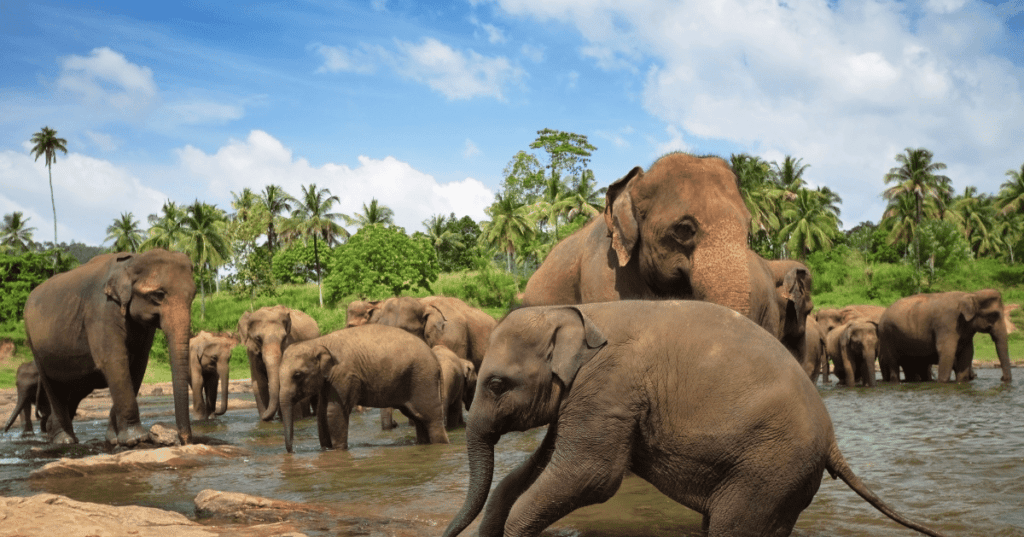
The Elephant Freedom Project, nestled in the hills of Northern Thailand, is dedicated to giving elephants the freedom they deserve after years of hard labor. This sanctuary focuses on letting elephants live as they would in the wild—free from chains, schedules, and human interference.
Visitors can walk alongside the elephants as they explore the forest, learning about their histories and the sanctuary’s efforts to rehabilitate them. The project also supports local hill tribes, promoting conservation and sustainable livelihoods.
The Elephant Green Hill Project, located in the mountains of Northern Thailand, is committed to ethical elephant care and environmental conservation. This sanctuary offers a hands-off experience, where elephants are allowed to live naturally in their forest home.
The project emphasizes environmental sustainability, using eco-friendly practices to preserve the natural surroundings. Visitors can enjoy small group tours, gaining insight into the challenges faced by these animals and the importance of ethical tourism.
6. Elephant Green Hill Project
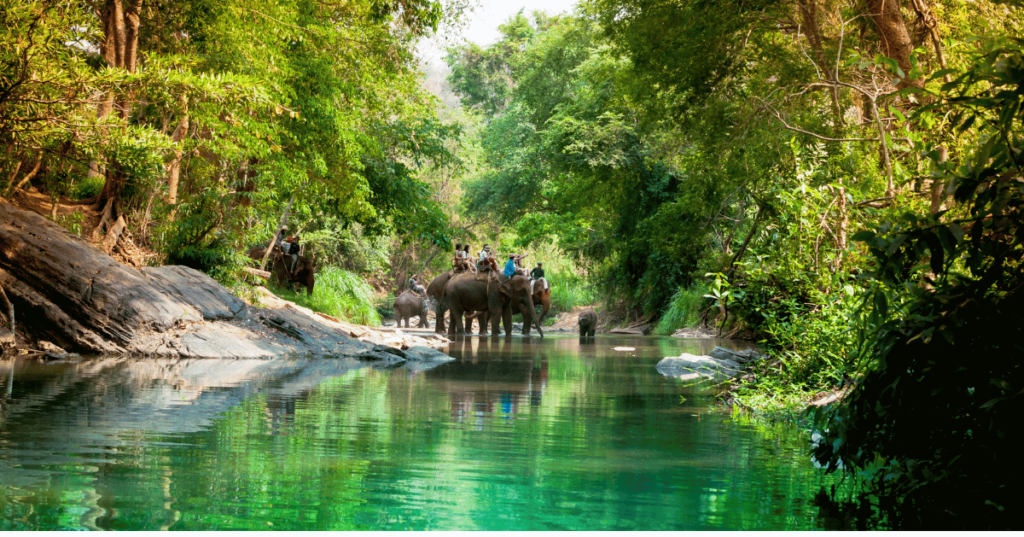
The Elephant Green Hill Project, located in the mountains of Northern Thailand, is committed to ethical elephant care and environmental conservation. This sanctuary offers a hands-off experience, where elephants are allowed to live naturally in their forest home.
The project emphasizes environmental sustainability, using eco-friendly practices to preserve the natural surroundings. Visitors can enjoy small group tours, gaining insight into the challenges faced by these animals and the importance of ethical tourism.
7. Mahouts Elephant Foundation

The Mahouts Elephant Foundation in Chiang Mai offers a dignified retirement for elephants who have spent their lives working under harsh conditions. This sanctuary focuses on the relationship between elephants and their mahouts (caretakers), providing fair wages and dignified working conditions.
Visitors can observe the elephants in their natural habitat and learn about their journeys to recovery. The foundation also supports local education programs and promotes sustainable practices, ensuring a positive impact on both elephants and the community.
FAQ:
1. What is the most ethical elephant sanctuary in Chiang Mai?
Choosing the “most ethical” elephant sanctuary can depend on what you’re looking for in your experience. However, Elephant Nature Park is often highlighted for its strong ethical standards and pioneering efforts in the field.
It’s renowned for its commitment to not only providing a haven for elephants but also educating visitors about ethical treatment. If you’re seeking a sanctuary with a broad, well-established reputation for ethical practices, Elephant Nature Park is a top choice.
2. Is it ethical to visit an elephant sanctuary in Thailand?
Visiting an elephant sanctuary in Thailand can be ethical, but it largely depends on the sanctuary’s practices. Ethical sanctuaries prioritize the welfare of elephants, ensuring they are not subjected to riding, performing, or any form of exploitation.
Always choose sanctuaries that follow a strictly hands-off approach, where you can observe elephants in their natural behavior without interacting physically. Research and choose facilities with a strong commitment to animal welfare and transparency.
3. How much does it cost to visit an elephant sanctuary in Thailand?
The cost of visiting an elephant sanctuary in Thailand varies depending on the sanctuary and the type of visit you choose. Typically, day visits range from about 2,000 to 6,000 THB per person.
Overnight stays and more immersive experiences can cost between 10,000 and 15,000 THB, including accommodation and meals. Prices often reflect the level of care provided to the elephants and the inclusiveness of the visitor experience.
4. Is Smile Elephant Sanctuary ethical?
Smile Elephant Sanctuary has faced some controversy regarding its practices. While it aims to provide a good life for elephants, it’s crucial to research and read recent reviews and reports to ensure it meets high ethical standards.
For the most ethical experience, look for sanctuaries with transparent practices and strong, positive feedback from visitors and animal welfare organizations.
Read More About Thailand
- A Spiritual Journey: Visiting Chiang Mai’s Top Temples
- Things to Do In Koh Lanta, Thailand: Ultimate Guide 2024
- Things to Do Near the Old Siam Plaza, Bangkok
- Travel Guide To James Bond Island In Phang Nga Bay
- Hidden Gems of Bangkok: Ancient City, Old Siam Plaza, and Museum Siam
- Best Halal Food Restaurant in Bangkok, Thailand
- Phang Nga Bay: Thailand’s Most Scenic Coastline
- The Ultimate Koh Samui Travel Guide: From Beaches to Nightlife
- 10 Useful Bangkok Travel Tips

